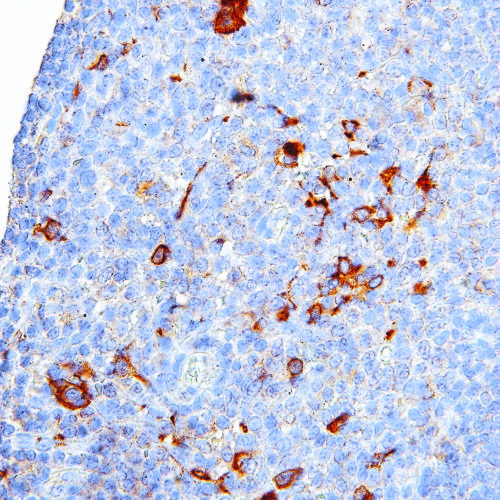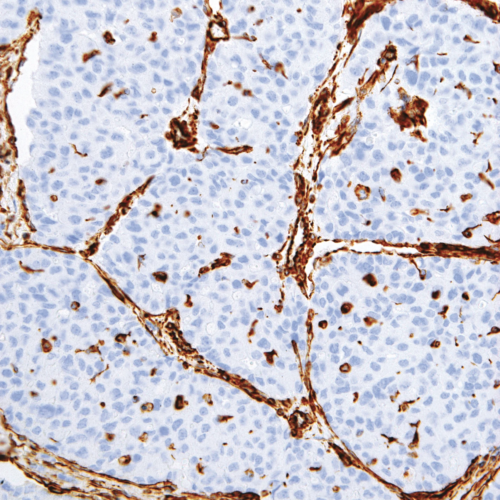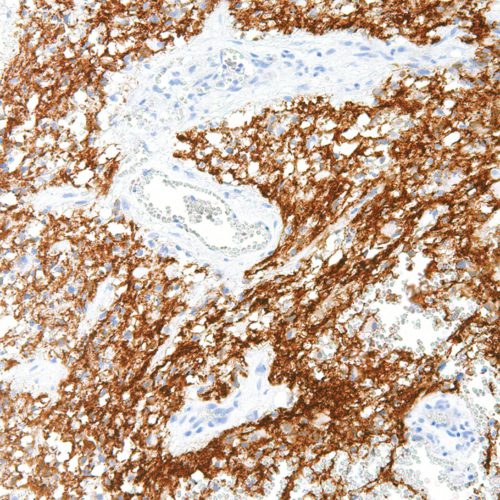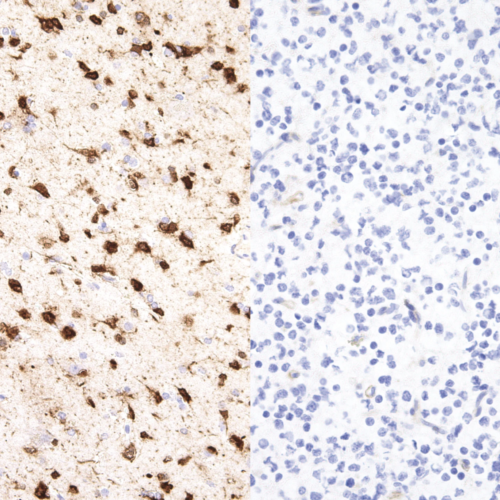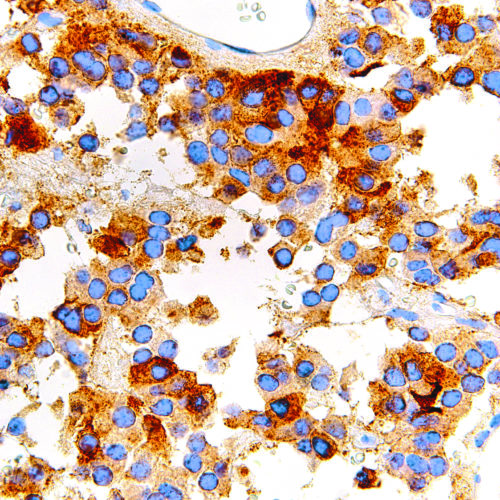High quality products to support Pathologists and Biological and Environmental Scientists
GeneAb™ CTLA-4
$129.00 – $989.00Cytotoxic T-Lymphocyte-Associated Protein 4 (CTLA-4) is a receptor on T helper cells that functions as an immune checkpoint and downregulator of immune responses. Mutations in CTLA-4 are associated with insulin-dependent diabetes mellitus, Hashimoto’s thyroiditis, Graves’ disease, systemic lupus erythematosus (SLE), celiac disease, primary biliary cirrhosis, thyroid-associated orbitopathy, multiple sclerosis, and other autoimmune diseases. The spliced variant of CTLA-4 in SLE is present in the patient’s serum. Haploinsufficiency of CTLA-4 causes the immune system disorder known as CTLA-4 deficiency or CHAI disease (CTLA-4 haploinsufficiency with autoimmune infiltration).
GeneAb™ Vimentin
$64.50 – $311.75Vimentin is a component of intermediate filament in mesenchymal cells, such as endothelial cells, fibroblasts, lymphocytes, and melanocytes. Anti-Vimentin is useful for assessing whether tissue samples have been processed and preserved properly. A panel of Anti-Vimentin and Anti-Keratin is useful for differentiating melanomas from large cell lymphomas and undifferentiated carcinomas. This diagnostic grade Vimentin IVD antibody stains melanomas and schwannomas, as well as Endometrial endometrioid adenocarcinomas.
GeneAb™ Tau
$80.62 – $301.00Tau proteins are abundant in neurons of the central nervous system, and function in microtubule stability and organization. Defects in Tau functioning and aggregation of these proteins have been clinically linked to a number of neurodegenerative disorders including Alzheimer’s disease, Parkinson’s disease, Pick’s disease (PiD), progressive supranuclear palsy (PSP), cortical basal degeneration (CBD), and frontotemporal dementia with parkinsonism linked to chromosome 17 (FTDP-17).
GeneAb™ IDH1 R132H
$150.50 – $585.88Isocitrate Dehydrogenase 1 (IDH1) is a soluble, cytosolic enzyme involved in the TCA metabolic cycle. The most notable mutation in this enzyme, R132H, is clinically indicated in the majority of astrocytomas and oligodendroglial tumours, with the mutation being associated with more favourable prognosis and increased survival in those patients. IDH1 R132H is also useful in the differential diagnosis between anaplastic glioma and glioblastoma.
GeneAb™ FSH
$118.25 – $494.50Follicle-Stimulating Hormone (FSH) allows for progression of ovarian folliculogenesis, and enables Sertoli cell proliferation in the testis. Anti-FSH reacts with FSH-producing cells, therefore FSH staining is useful for classifying pituitary cancers and understanding pituitary disease.
